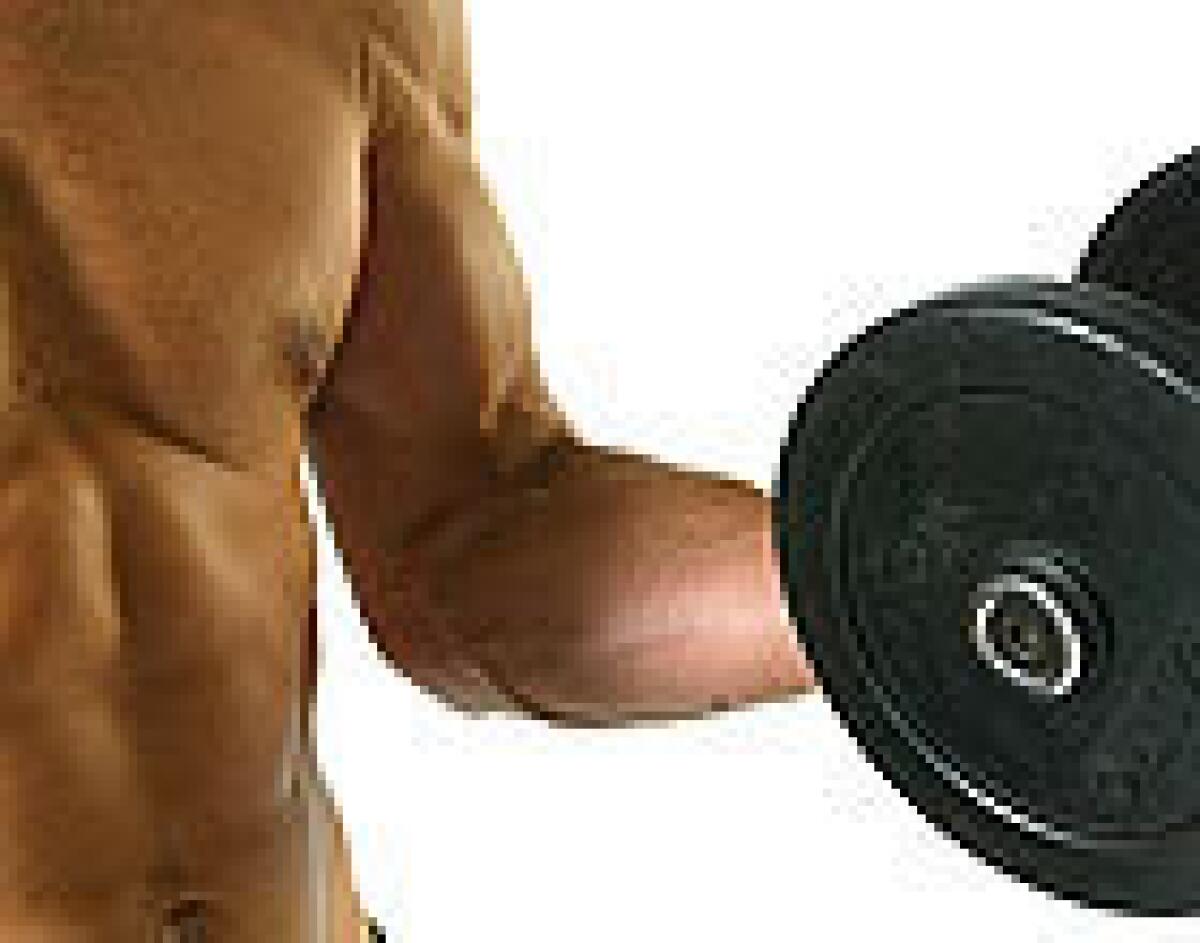Muscles aquiver

- Share via
Why do my muscles shake involuntarily during certain exercises, especially abdominal ones? Is this a bad sign (perhaps of fatigue, weakness in specific muscle groups or poor nutrition)? Or does this indicate that the muscles are being worked and strengthened?
DEBORAH
Irvine
*Good news: That shaking means you’re working and strengthening your muscles. But it’s also a sign that the muscle is not accustomed to the demands you’re putting on it, says Dr. Daniel Vigil, director of sports medicine at Kaiser Permanente Medical Center in Los Angeles. The trembling indicates “how the muscles grab and release one other as they lengthen and shorten” during the exercise, he says. But that action will become smoother, and the shaking will stop, once the muscles become more used to the activities you’re doing.
Although the shaking isn’t dangerous, the fact that you’re putting extra demand on the muscles could result in some soreness the next day. “The soreness reflects the fact that there’s some muscle damage,” Vigil says, “but when the body repairs it, you come back fitter and stronger in the end, so it’s a good thing.”
You may want to drop the intensity a bit until the muscles strengthen, Vigil says. When doing abdominals, accomplish this by bending your knees.
Try tracking swimming heart rate
Why does trotting raise my pulse rate disproportionately higher than my breathing rate, whereas swimming raises my breathing rate disproportionately higher than my pulse rate?When swimming, I must really push myself to raise my pulse above 130. When running, I get my pulse to 160 to 170 yet am not nearly as “winded.”
JON
Tujunga
*This could be a perceptual illusion, says Dr. Christopher B. Cooper, professor of medicine and physiology at UCLA and director of the school’s exercise physiology research lab. When you run, you probably pay less attention to your breathing.
But when you swim, your breathing pattern is tied, by necessity, to your strokes. You can’t breathe whenever you want to. The act of coming up for air and breathing out at specific intervals may draw attention to breathing and make you feel as though you’re out of breath.
Because of this, and because your upper body muscles may be in less shape for swimming, you might not be pushing yourself that hard when you swim compared to when you run. To catch up when swimming, you may need to pay extra attention to the activity.
Cooper suggests that the next time you swim, note your heart rate and what your breathing feels like for a particular time or number of laps at your regular pace, then push beyond that and see what happens. “I’d be very surprised if you didn’t find that your heart rate and breathing increased as you pushed the intensity,” he says.
— Jeannine Stein
Do you have a question about health- or fitness-related topics for the reporters at The Times? Here’s your chance. Questions must be general in nature, and not all submissions can be answered. Go to latimes.com/healthqa.



